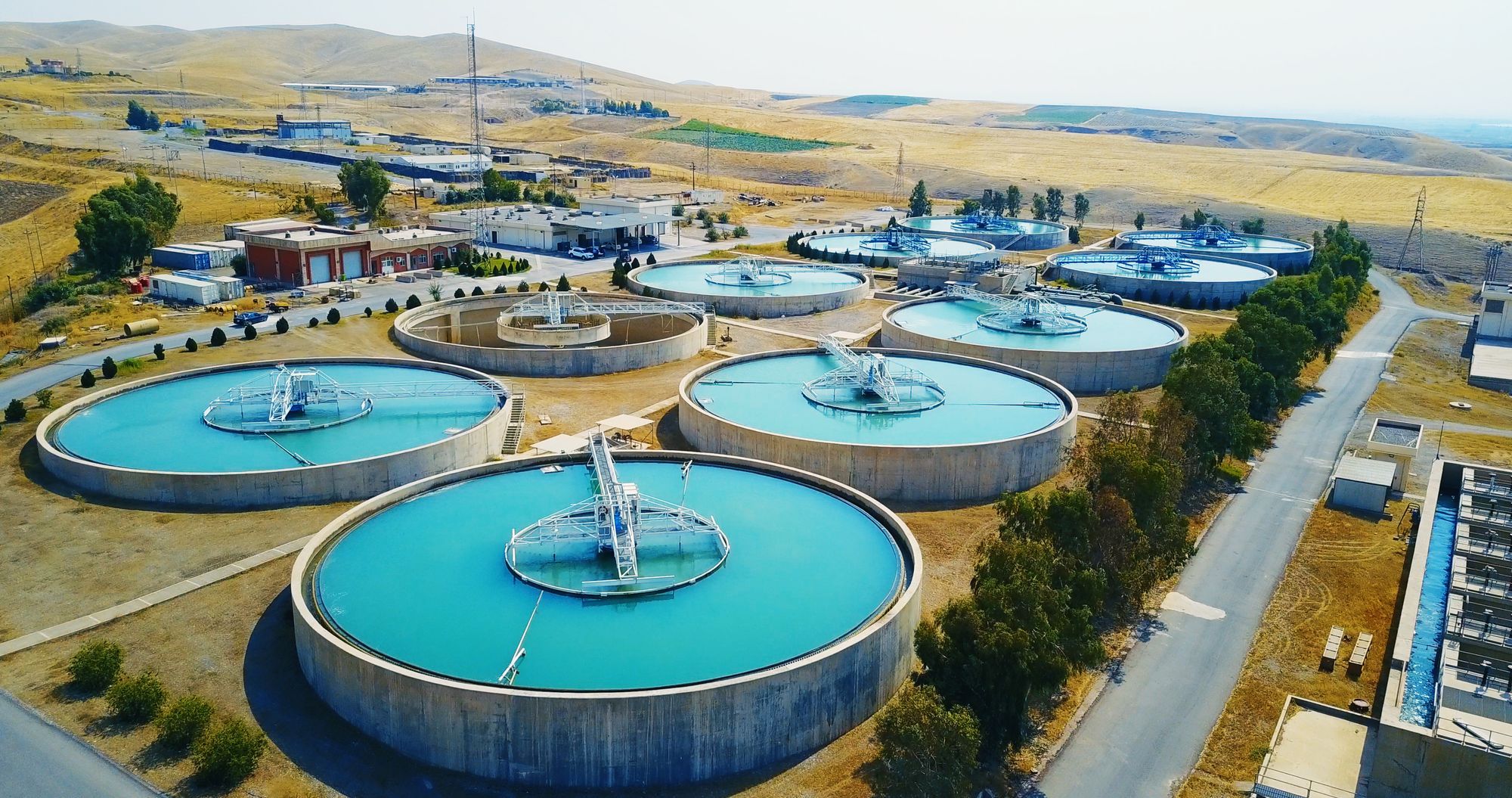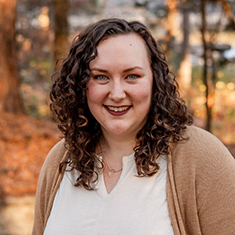Citizen involvement invigorates democracy and is essential for good governance. Thanks in part to the work of the Iraq Governance and Performance Accountability (IGPA/Takamul) Project, Iraqi citizens are beginning to see that dynamic play out in their long-troubled nation.
Despite the generally negative headlines in news coverage marking the 20th anniversary of the U.S. invasion of Iraq, the country is, according to one Washington Post editorial, “more peaceful and prosperous than at any time in the past two generations. It is a democracy, albeit a fragile one, which is a rarity in the Arab world. Baghdad is thriving. Oil exports are flowing. Foreign investors are betting on the country’s growth.”
Launched in 2017 by the U.S. Agency for International Development, the IGPA/Takamul (“integration”) project supported Iraq’s federal, regional, and provincial governments in improving service delivery in four key areas: legal and structural reforms to decentralize decision making; public financial management reforms in local revenue generation and collection, planning and budgeting, financial reporting, and oversight and monitoring; creation of accountability mechanisms to help the government meet citizen needs; and mobilization of local change agents to ensure the sustainability of all these measures.
As the project evolved over the years, it also added new efforts—an investment initiative and a climate change governance activity—responding to evolving needs on the ground.
The project took both a bottom-up approach—working to build the capacity of institutions delivering public services—and a top-down approach to address some of the root causes: strengthening the laws, regulations, policies, instructions, coordination, processes, and procedures that underpin good service delivery.
WATCH: Cameron Berkuti, Chief of Party
Delivering the Goods
Government contracts remain a major source of economic activity in Iraq, a delivery mechanism for public services, and a big contributor to social and economic revitalization. However, the bidding process for infrastructure projects tends to be drawn out and complex, deterring companies from bidding, reducing competition, and causing construction problems during the project due to unclear contract language and unnecessary risks.
“Government personnel, too, found that the bidding procedure was not serving the government’s and contractors’ interests; it was obvious that an overhaul was overdue,” said Cameron Berkuti, the project’s Chief of Party.
IGPA/Takamul developed two standard bidding documents for small- and medium-sized projects, which represent 70 percent of all government projects, and updated nine more to streamline the bidding process, making procurement more responsive and transparent while reducing delays in contract execution. The Iraq Ministry of Planning and Kurdistan Regional Government Ministry of Planning adopted the documents for all national and local government procurements.
Additionally, to keep track of project progress, the team enhanced the Iraq Development and Management System, trained staff at the ministries, set guidelines, and gave technical advice. These efforts helped:
- Implement 196 projects worth $946.8 million.
- Train 3,000 employees to use the new bidding documents.
- Resolve and move forward 1,500 projects that had been long suspended or delayed.
- Reduce the time it takes to implement water projects—in Anbar, for example, implementation time was cut by 75 percent.
In the critical water sector, IGPA/Takamul worked with federal water treatment plants on major operational problems that were depressing water treatment rates. The team developed standard operating procedures to improve operations and maintenance, delivered a capacity-building program, and prepared an action plan and recommendations for rehabilitation, repair, and upgrade works required to be included in the budget.
To date, among other results, the project improved the operations of 72 critical water treatment plants that represent 18.4 percent of federal water production capacity, benefiting 8.1 million Iraqis.
Lastly, the project enacted major changes in solid waste management by applying circular economy principles to protect the environment, fulfill citizens’ increasing demands for better services, and improve operational and economic efficiencies. The team re-engineered the waste collection process to collect the maximum amount of waste, in less time, with reduced cost, while optimizing the use of transfer stations and landfills. The process removes steps that do not add value, resulting in leaner, more cost-efficient, and more effective operations.
The government entities adopted IGPA/Takamul’s suggestions and invested in upgrades and repairs to the main landfill plots, a composting area, a recycling plant, waste hangars, and maintenance units. IGPA/Takamul provided sustained technical guidance and landfill management training as part of the project’s broader technical program that encompasses the whole waste management chain, from household trash collection to landfill disposal, recycling, and trash byproduct processing.
As a result of new practices adopted by municipalities, they now serve five times more houses and have reduced the cost of service by 50 percent. The Baghdad governorate saved $200,000 a year due to reduced operating and vehicle maintenance expenses.
Anbar improved the volume of waste collected by 40 percent and reduced fuel consumption by collection vehicles by 20 percent. Basrah boosted the volume of waste collected by 55 percent.
Holding local governments to account for all these service delivery reforms are local civil society organizations (CSOs). “Previously, we didn’t have much contact and cooperation with CSOs,” said Abdualjaleel Bresam, Wasit Deputy Governor for CSO Affairs. “IGPA brought us together and explained our points of convergence and how we could re-enforce each other. Since then, the CSOs have been our hard-working partners in practically all aspects of service delivery.”
Managing Resources for the Future
As climate change intensifies droughts, dust, desertification, and migration in Iraq, water resources become even more precious and difficult to manage. To mitigate these pressures and better manage Iraq’s water systems, IGPA/Takamul trained specialists from the Ministry of Water Resources in using a state-of-the-art water management system tool and provided computers to implement the system. As a result, the ministry is now better able to assess the impact of climate change on water resources and make data-driven decisions.
The team also engaged with civil society and community groups through more than 1,000 campaigns about water conservation, keeping neighborhoods clean, mitigating and adapting to climate change, using renewable energy, and increasing water service subscriptions.
Embedding language about the effects of climate change into various laws and policies also helped the team spread awareness and improve governance of these pressing issues. IGPA/Takamul developed a waste-to-energy model (generating electricity by incinerating waste) and drafted a new solid waste management law taking into consideration environmental and climate change issues. When implemented, the law will lower methane emissions, encourage recycling and sorting of waste materials, and open up waste-to-energy conversion opportunities. The team also helped establish a government funding concept that complements the Green Climate Fund.
In the agriculture sector, the team advised farmers and developed guidelines for the Ministry of Agriculture on how to adapt to climate change by employing smart farming practices. In six provinces, the team operationalized Environment Protection and Improvement Councils.
Iraq—with its 3,250 hours of sunshine a year—is primed for hosting solar power, so the IGPA/Takamul team developed a solar power guidebook, approved by the Ministry of Electricity, to address questions asked by citizens, as well as a set of public-private partnership guidelines setting conditions for increased foreign and private sector investments in generating solar power, either at the residential level or for commercial establishments seeking to sell power to the government.
Mechanical engineer Ahmed Sabah, who lives in Baghdad, was inspired by the awareness campaigns about solar power. Sabah installed a system that covers the needs of his eight-member family and reduces his household's dependence on the national electricity source by 30 to 40 percent. “I only pay 40 percent of the monthly electricity bill compared to the previous months,” he said. “I would add more to my solar panels if I had more space on my rooftop.”
The Ministry of Electricity also approved IGPA/Takamul’s greenhouse gas reduction model from utility-grade solar projects and off-grid solar projects to help Iraq adhere to international agreements and treaties.
Bringing Citizens to the Table
Across all the activities—from improving how services are delivered to expediting slow processes and drafting new laws and policies—the team ensured that Iraqi citizens had their say and shared their priorities and vision.
As Safaa Ameen, head of the Ameen Organization for Relief and Development, said, “The usual practice is that the local government prepares the budgets without consulting the people.” But he believes that citizens recognize complex public problems and have a good idea of how to solve them: “What they need is a voice in government planning and decision-making processes and an opportunity for mutual listening and learning.”
The IGPA/Takamul team created a multi-stage public consultation process starting with in-person and electronic surveys gathered by the provincial planning departments, technical working groups, and civil society partners. They collated all that information for the provincial government and presented it to citizens through public hearings.
The consultations were structured but informal, allowing citizens to air their opinions freely. In Basrah, residents arrived at a consensus on the priority projects for funding, and the provincial government aligned its budgetary decisions with the citizens’ priorities, such as funding a transit bridge in 2022. In Bagdad, Governor Mohammed Jaber Atta participated in a public hearing to assure citizens that the government was eager to hear their views. Citizens in the other provinces likewise influenced the provincial government’s decision on the priority projects to implement in 2022.
“Hearing from citizens helps bridge the divides or build consensus between different views and involving them in decision making proved useful,” said Amal Abdulrazaq, assistant manager of the Basrah Planning Department. “The government considered many of the projects they proposed for funding, which proved that the local government is attentive to citizens’ suggestions and needs.”
Prioritizing Anti-Corruption Efforts
IGPA/Takamul has institutionalized civil society offices in the governors' offices and developed a transparency mechanism. The project also re-engineered many provincial government processes to reduce bureaucracy and corruption. While IGPA/Takamul helped the government and Iraqi citizens achieve significant improvements in service delivery, much work remains to be done to restore the citizen-state contract. Poor service delivery in the water sector led to post-election demonstrations in 2021. The Tishreen Revolution, with protests in many parts of Iraq, had its roots in citizens’ frustration with poor local services. Periodic provincial protests, such as water riots in Dhi Qar and Basrah, also called on the national and subnational governments to address issues of corruption, unemployment, and water resource management.
For Iraq to continue on a path of progress, the government and its development partners will need to continue to address core issues: prioritizing citizens’ needs in service delivery, promoting transparent and data-driven decision making, and addressing corruption. While IGPA/Takamul has demonstrated the power and efficacy of citizen voices in improving local service delivery, provincial and municipal governments need to institutionalize citizen engagement mechanisms that enable regular, open dialogue between governments, citizens, and nongovernmental groups to collaboratively resolve local challenges, prioritize investments, and monitor implementation.
The government must include citizens, especially vulnerable and marginalized groups, in planning and budgeting decisions for infrastructure, and make financial data readily available and accessible so citizens can measure progress in the areas they care about. Finally, corruption remains a concern across the spectrum of subnational governance—from systemic corruption in procurement and financial management to petty corruption at the point of service delivery, which affects Iraqis in their day-to-day lives and erodes their trust in government.





